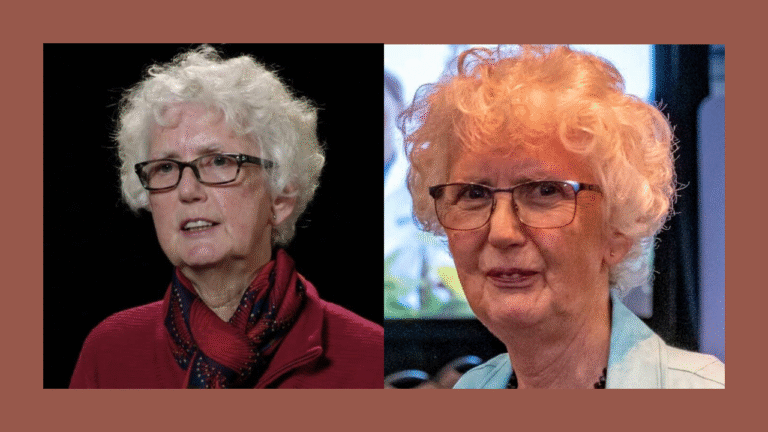Caroline Crowther Introduction
Caroline Crowther stands out in the world of medical research as a distinguished obstetrician, gynecologist, and epidemiologist—specializing in maternal and child health. Though she’s known to many within academia, her rising influence stems from decades of rigorous clinical trials and evidence-based contributions that resonate globally. In this article, we’ll explore her background, approximate age, professional trajectory, and what is publicly known about her net worth.
Caroline Crowther Early Life and Academic Formation
While precise birth details of Caroline Crowther are not broadly publicized, she is recognized as an established medical professional with decades of experience. Her academic journey began in Australia before she transitioned into research roles that would shape global maternal care. From these clues, one can infer she’s likely in mid- to late-career—possibly in her 50s or 60s, judging by research volume and prominence, though exact age remains unconfirmed in public records.
Caroline Crowther Academic and Professional Milestones
Caroline Anne Crowther holds dual affiliations: she has served as a professor at both the University of Adelaide (Australia) and the University of Auckland (New Zealand), showcasing her international academic footprint.
Her work centers on shaping medical practice through large-scale clinical trials and systematic reviews—particularly in perinatal and maternal health. Among her landmark studies:
- Gestational Diabetes Treatment: Demonstrated that early and effective management leads to better pregnancy outcomes, influencing universal screening practices.
- Antenatal Corticosteroid Use: Her trials comparing betamethasone and dexamethasone established equivalency in efficacy, offering clinicians greater flexibility.
- Magnesium Sulfate for Neuroprotection: Her study showed it significantly reduces the risk of cerebral palsy in preterm infants—ushering in new care standards.
- Vitamins C and E: Although ultimately ineffective against preeclampsia, her investigations redirected focus toward more promising interventions.
- Lifestyle Intervention for Overweight Pregnant Women: Her LIMIT trial raised awareness of the role of nutrition and exercise in improved perinatal outcomes.
Additionally, Crowther has contributed to numerous systematic and Cochrane reviews, underpinning evidence-based clinical guidelines on labor induction, antenatal steroids, and pain management during labor.
Caroline Crowther Global Impact and Recognition
Crowther’s influence reaches far beyond academic circles. Her findings have shaped international policy guidelines, improving care delivery in both high-resource and low-resource settings. For instance, her work on gestational diabetes and magnesium sulfate is incorporated into global maternal health strategies.
Her scholarly output is substantial—over 40,000 citations reflect the widespread academic impact and recognition of her work. One database records over 600 research works with more than 33,000 citations, including long-term follow-ups spanning decades—an indicator of her enduring commitment to longitudinal outcomes.
Her standing in the scientific community was further validated when she was elected a Fellow of the Royal Society of New Zealand in 2019, a prestigious acknowledgment of her contributions to science.
Caroline Crowther Current Focus and Research Directions
Caroline Crowther continues her role at the University of Auckland, driving research in key areas:
- Ongoing studies on gestational diabetes, including long-term implications for maternal and child health.
- Examination of nutraceuticals and mental health outcomes in children born to mothers with metabolic disorders during pregnancy.
- Emphasis on the ethical design and community perceptions of clinical trials in maternal health contexts.
Her agenda remains forward-looking, with a focus on translating foundational research into improvements that last a lifetime—from the womb well into adulthood.
Estimating Caroline Crowther Age
Though no concrete birth date is available, Caroline Crowther’s extensive publication record, high citation counts, professorships at leading universities, and fellowship recognition suggest she has maintained an active research career for many decades. Given typical academic trajectories, she is likely in the mid-50s to late 60s, but any precise age remains speculative in the absence of official biographical information.
Available Information on Net Worth
Information regarding Caroline Crowther’s personal net worth is not publicly available. As a public academic, her compensation stems from university salaries, research grants, and possibly stipends for leadership roles—none of which translate into publicly estimated net worth figures.
Some unrelated sources mentioning a Caroline Crowther (wife of musician Phil Lynott) include speculative remarks about remarriage and privacy preferences. However, those references pertain to a different individual sharing the same name and should not be conflated with Professor Caroline Anne Crowther, the medical researcher. Any net worth estimates tied to the former (related to music or entertainment circles) are wholly irrelevant to the researcher.
Hence, when considering the focus entity—Professor Caroline Crowther—no verifiable data exists to provide an estimate of her net worth. Most academic professionals’ wealth remains private unless explicitly disclosed, as is her case.
Legacy and Future Outlook
Professor Caroline Crowther’s legacy is firmly rooted in transforming maternal and infant healthcare through rigorous, evidence-based research. Her trials have sparked guideline changes and enhanced treatment protocols globally. Her leadership and mentorship continue to shape the next generation of researchers in perinatal epidemiology.
Looking ahead, her exploration of mental health outcomes and ethical trial participation signals her commitment to holistic, lifelong care perspectives. Whether in high-resource countries or underserved communities, her work continues to bridge science and social impact.
Conclusion
Caroline Crowther—an eminent obstetrical researcher—is a testament to how clinical science can drive global change. While her precise age and net worth remain undisclosed, her prolific output, academic credentials, and industry respect affirm her stature. Her work not only redefined perinatal healthcare but also continues evolving, promising improved outcomes for mothers and children around the world.
